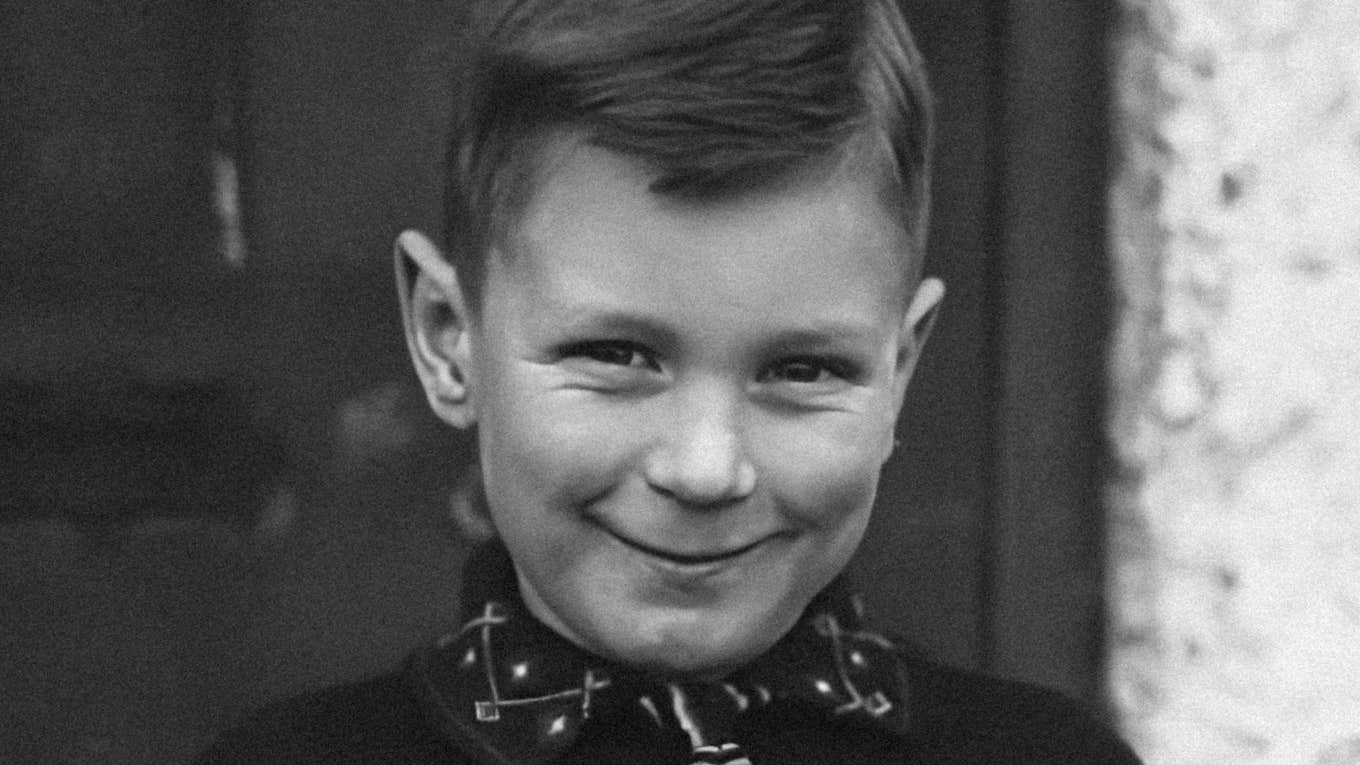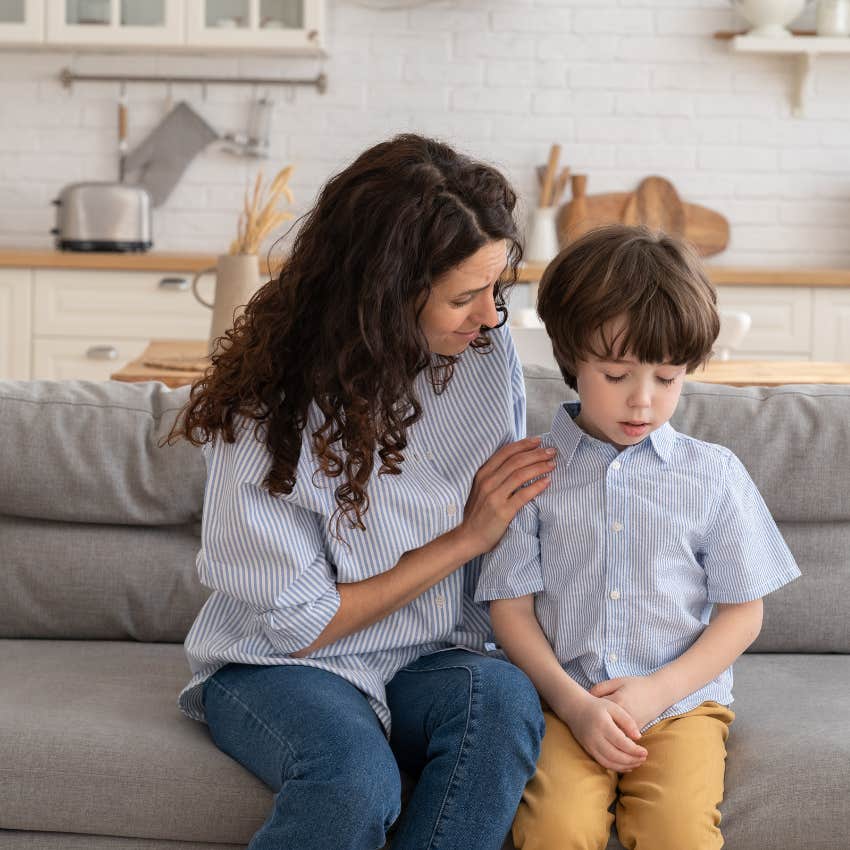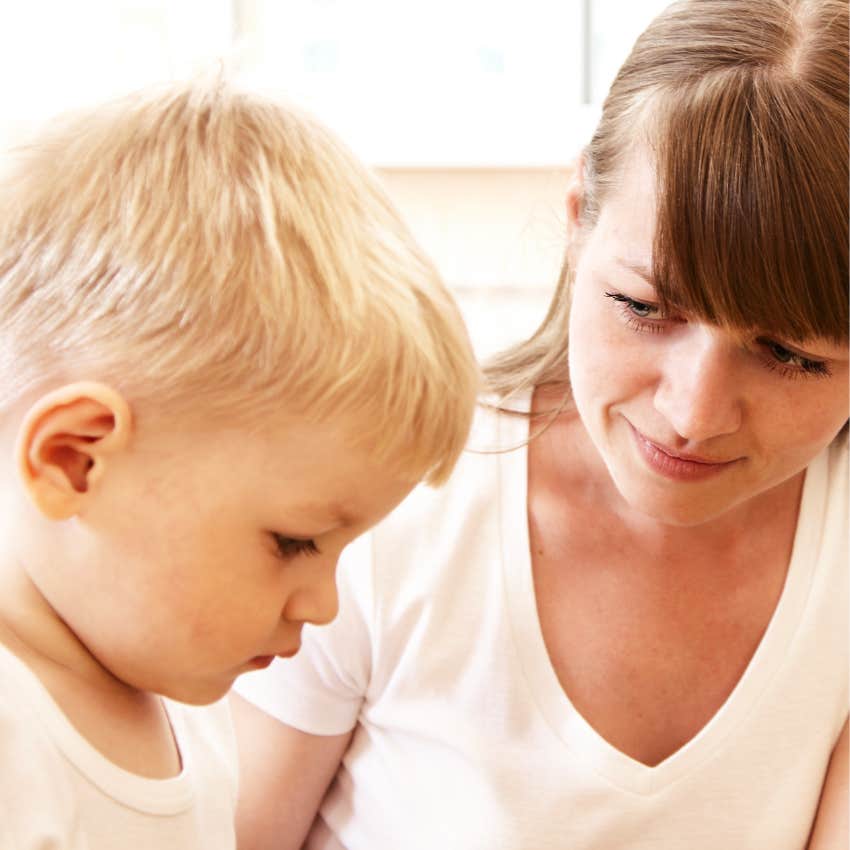Your Parents Did A Great Job Raising You If You Were Taught These 9 Timeless Words
The lessons that stick with us often come down to a few powerful words.
 llyfregell Genedla | Unsplash
llyfregell Genedla | Unsplash As a parent, and someone who pays close attention to social issues around gender, I think it's crucial that we make a conscious choice to arm all of our kids with timeless words that can give them important social skills or the ability to describe feelings.
This list is for parents of kids of any gender, but I am focusing a bit on what words boys need to know, so we can help them describe things we don't typically think of as manly or boyish.
Here are words you need to teach your young son immediately:
1. Lonely
Loneliness often happens when you feel like nobody cares about you. As adults, we can often reason with ourselves about this feeling, but for a child, it can be awfully hard to understand why people aren’t giving us what we need, emotionally, at the moment we need it.
Your kid may be resisting bedtime and say that he gets scared or sad in his room. He may actually be scared, or just sad, or he may feel very alone. Maybe you watch TV on the couch after he goes to bed, or you and your spouse sleep in the same bed without him. Being excluded from those things could be a lonely feeling for a kid.
Once you understand the nature of his feelings, you can better explain that even though he's by himself in his bed, he's very much loved by his family, and in the morning you can all be together again.
2. Frustrated
 DimaBerlin / Shutterstock
DimaBerlin / Shutterstock
It's not angry. It's not sad. It's something else, and young children feel this sensation regularly. Imagine having to follow every command of somebody else all the time, even when their demands feel illogical. How frustrating would it be to watch other kids get to do stuff you aren't allowed to do, just because of your size?
These are the challenges kids face every day. And it's frustrating. And yet most little kids don't know that word, so when they start to feel that way, they can only define it as mad.
I suspect that's why tantrums often look like little rage fests. So get down to eye-level with your child and describe that frustration is when you get upset because you just can't seem to do what you want to do, and maybe you don't’' even know why you can't.
Try teaching them the word, explaining the definition, and asking them to say "I'm so frustrated!" next time. Once you understand, then you can walk him through the problem and help him solve it — or at least understand the "why."
3. Intimidated
I remember arriving at a park to play with a bunch of our preschool buddies with my son and he turned and said, "I want to go home." I'd driven thirty minutes to get there, and we weren't going home. I asked him why, and all he'd say was, "Because." "Because what?" Nothing. Finally, he said, "I'm scared."
There was nothing to be scared of, and I told him that, not realizing that I was invalidating his feelings at that moment. He was safe, he'd played there before, and I was right next to him. Finally, he explained that he felt like his friends were all together and he didn't know what they were playing.
I realized then that he wasn't scared, he was intimidated. He felt unprepared and unworthy. Once I understood that, I was able to solve the problem. And once he knew the word, he used it frequently in situations like that.
Research highlights parents' crucial role in teaching children to manage their fears. It emphasizes that supportive parenting and modeling healthy coping mechanisms are vital for a child's emotional development and resilience. Supportive parents who validate their children's emotions and provide soothing responses are better equipped to help children modulate their fear responses.
4. That's just not my thing
This is a funny one, but it's something we've evolved in our family after a lot of trial and error.
Saying, "That's just not my thing," is a way for kids to back out of socially pressured situations without seeming like they're judging others or making a big deal out of something. This can be anything from, "Hey, why don't you play basketball with us at recess like the other guys?" to something that he or she's not ready to handle, like a roller coaster or a scary movie.
It can also be used to diffuse a dangerous or amoral situation like bullying or excessive risk-taking. Of course, when kids are being cruel or harming someone (or themselves), you should empower your kid to stop or report them to a trusted grown-up, but he may also need an "out" for the situation that's handy in a pinch so he can take a moment to figure out how to proceed next.
5. Hangry
Things we know about kids: They act out and get more emotional when they're hungry. But oftentimes, they don't realize they're hungry! They just feel mad, and will tell you that in no uncertain terms!
We joke about the word "hangry" with our kids, but it's a useful term because hungry anger is a pretty specific feeling, and having a word for it may help your kid feel empowered to explain exactly what he or she is feeling, and remind them to stop and eat a nutritious snack like string cheese or some almonds, that will help stabilize his or her blood sugar and mood.
6. Proper names for their body parts
I know, there's nothing cute or fun about talking about the accurate terminology for body parts, but it's necessary. Being able to accurately describe parts of our own bodies empowers us to speak openly and honestly about them. Using these terms without shame teaches our kids that they can come to us with questions or concerns, and this is important for their health and their emotional development.
By not using cutesy terms, we raise kids who are empowered about their bodies. We can then discuss that their areas are their own private business and that nobody gets to touch them without permission. Likewise, we don't touch other people or make people feel uncomfortable.
Christopher Anderson, Executive Director of MaleSurvivor, an advocacy and support group for men and boys (and their loved ones) who have been sexually abused, explains further why accurate terminology is important:
Many child protection experts strongly urge parents to empower children with the proper terminology for all body parts. Doing so can greatly improve a child's understanding of their bodies, which can in turn improve their self-image and confidence. Confident, well-educated children are also less at risk for abuse, especially abuse, at the hands of perpetrators who often seek out children who are more vulnerable and less informed.
This is, of course, part of a much larger conversation, but it can help prevent your child from being abused or abusing others. This conversation has to start at age 1 and continue into their college years.
Research suggests that teaching children the proper names for their body parts, including genitalia, can enhance their body image, self-confidence, and ability to communicate about their bodies. Knowing the correct names allows children to communicate clearly and accurately about their bodies and any issues they might be experiencing, including potential abuse.
For more specific instructions, see The Healthy Sex Talk, Teaching Consent Ages 1-21, which I co-authored.
7. Touched-out
 Marina Dyakonova / Shutterstock
Marina Dyakonova / Shutterstock
This term has become synonymous with new parents who have babies climbing all over them all the time, but it's useful in a lot of different ways, too. Sometimes, as a parent, you just feel like you need some personal space.
Maybe you're in a bad mood, or maybe you have had a baby on you all day long. Regardless, it's okay to lovingly tell someone — even your child — that you're feeling "touched out" and would like a little time when nobody is touching you.
Reassure him or her that pretty soon you'll feel like snuggling or wrestling again, but for now, you need everyone to honor your "space bubble." I always use my hands to show my kids how far around me my space bubble is, and ask them not to pop it.
Not only are you teaching them to honor others' bodily autonomy, but if you also offer this as an option for your child, then you're empowering him or her to say "no" to touching, even loving or innocent touch. If his little brother or sister is poking him or trying to snuggle, then he can say to you or them, "I feel touched out" and you can help advocate for his personal space.
8. Overwhelmed
I talked about this at the beginning, but I want to underline the way I see this word helping kids, especially boys, in classroom settings.
Often, when we see a kid drifting or fidgeting in class we may default (even if only subconsciously) to assuming that the kid has an attention issue or just doesn't care about school. But what if there's another issue?
What if he wants to engage but is overwhelmed because he's behind, or because he can't hear the teacher, has a distraction, or see the board well? This feeling word could be of great service in young elementary school classrooms.
Parents should create an environment where children feel comfortable expressing their negative emotions without fear of judgment or punishment. A 2024 study recommended explaining that emotions, like a wave, build over time and that children can learn to manage them before they become overwhelming.
9. May I please..?
At the top of my list of things kids do that drive me crazy is when kids make demands. It drives me absolutely bonkers to hear a kid say, "Get me some milk" or "Give me that toy."
I know kids are naturally very selfish creatures, and being demanding is a part of development, but part of teaching your child empathy is asking them to consider how it feels to have someone demand something from them. "Dad, may I please have a glass of milk?" or "Mom, could you please get me the Lego bin?" are questions that require your child to consider how you feel, what you're doing, and how their request might affect you.
If my arms are full of groceries, I hope my sons will see that and not tell me at that exact moment to open the door for them. But if we don't teach them to ask people for things nicely, they may not learn to consider the feelings of the person they're imposing upon. And trust me, your child's teacher will appreciate the good habit.
Becoming comfortable with asking for things with respect, as well as learning to be kind and gracious when someone says "no" are lessons that will carry forward into their lives as older kids, too, especially when they start dating.
Joanna Schroeder is a parenting writer, editor, and media critic with bylines in The New York Times, The Boston Globe, Esquire, and more. Her forthcoming book Talk To Your Boys: 16 Crucial Conversations To Have With Your Tween & Teenage Sons will be available in September 2025.

